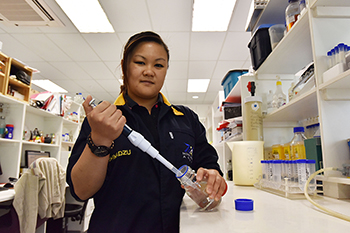Latest News Archive
Please select Category, Year, and then Month to display items
21 July 2021
|
Story Rulanzen Martin
|
Photo Charl Devenish
 Even after her premiership, Helen Zille has remained a powerful force within the South African political landscape. Here she is pictured during a workshop hosted by the Department of Political Science and Governance in February 2020.
Even after her premiership, Helen Zille has remained a powerful force within the South African political landscape. Here she is pictured during a workshop hosted by the Department of Political Science and Governance in February 2020.
Zille will be talking to
Prof Hussein Solomon in the Department of Political Studies and Governance at the University of the Free State.
You can join this interesting discussion on:
Date: 29 July 2021
About the author:
Helen Zille is a South African journalist, activist, and politician who served as the national leader (2007-2015) of the Democratic Alliance (DA), the official opposition party in South Africa. She was also Premier of the Western Cape from 2009 until 2019. Zille’s autobiography, Not without a Fight, was published in 2016.
The impact of personal care products on water resources in the Free State
2015-12-14

Jou-an Chen
Photo: Charl Devenish
|
Water is of the utmost importance in personal hygiene. Most people can hardly have a day go by without taking a shower in the morning and at night. However, it is this very habit that is increasingly polluting the water resources in South Africa.
Contaminants found in pharmaceutical and personal care products have been accumulating in water masses in recent years. These contaminants especially refer to hormones in medication, as well as colouring agents and fragrances used in soap, shampoo and body lotions.
“Little information and data are available on the prevalence of these contaminants, and on how high the level of pollution really is,” says Jou-an Chen, researcher in the Department of Microbial, Biochemical and Food Biotechnology at the UFS.
Her research particularly focuses on the prevalence and impact of those contaminants.
“Because these substances have not been properly investigated, we are not sure how widely it occurs and whether it is harmful to the environment. It was precisely the lack of information that has inspired me to investigate further.”
“If we could identify the contaminants and what it is doing to the environment, it could make a valuable contribution to directives on water quality standards.”